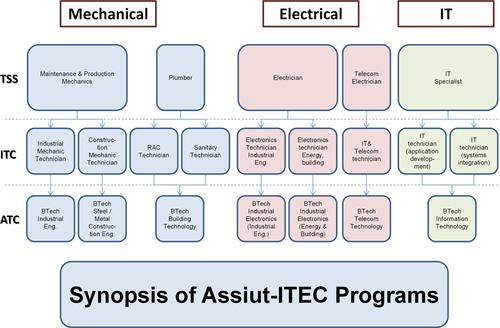Development of competency-based training system in Assiut-ITEC: A case study
Abstract
Introduction
This paper presents a didactic model that was developed at Assiut Integrated Technical Education Cluster (ITEC) to support the implementation of a competency-based training system (CBT). ITEC was established in Assiut, Egypt, to meet community demands, to raise the status of vocational education, and also to change the community perception of this type of education.
Objective
A new didactic model is introduced in terms of its conceptualization, realization, and evaluation. The model is built using concepts of competency-based didactic methods. Didactic methods are implemented to help teachers support students in developing their ability to integrate skills, knowledge, and attitudes, such that they are able to solve professional technical tasks and challenges. A case study is applied in Assiut city using a competency-based approach for the development and evaluation of training modules. These modules were first developed using learning situations. This includes determining the appropriate knowledge base for vocational and technical education teachers, core curriculum, minimal standards, new models of delivery, pedagogy, and connections with practice, relationships necessary with industry, research, and evaluation. The implementations of three programs at ITEC Assiut were based on discipline-specific didactic methods with multiple integrated systems. The scheme adapts the training courses into a series of flexible modules.
Discussion
Integrated learning situations are developed to enrich students' skills in electrical technology modules. This system, called the competency-based training, incorporates an intelligent didactic system. It is necessary to work continuously in small groups in order to achieve noticeable learning progress for the competencies to be gained successfully.


 求助内容:
求助内容: 应助结果提醒方式:
应助结果提醒方式:


